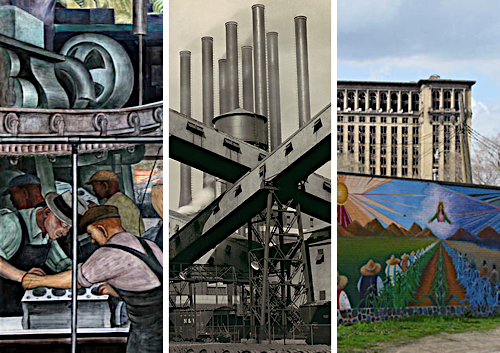Made in Detroit: A History of Art and Culture in the Motor City

The embodiment of "Modern Times" was the assembly line and Detroit, dubbed "the capital of the Twentieth Century" played an important symbolic role in the modern imagination. Yet while artists depicted Detroit's industry as an abstract emblem of twentieth century progress—and later of dystopian decline—the city has a complicated labor, racial, and political history that makes it and its art different from that of any other place. This seminar examines how Detroit has been presented in modern art, and the role that the arts and architecture have played in the city from the 1880's to the present. We will consider both works produced in Detroit that defined technology and urban culture for the world, and those that have particular local histories from the sleek factories that heralded modern architecture in America to the artificial past that Henry Ford assembled at Greenfield Village, from the heroic worker figures of Diego Rivera's murals to the controversies surrounding the Joe Louis monument and the Heidelberg Project, from "ruin porn" and gentrification to prospects for the future.
Students are required to attend two day-long field trips which will include a visit to the Detroit Institute of Arts.
Required texts (also on reserve) will include Terry Smith, Making the Modern; F. W. Taylor, Principles of Scientific Management; Karen Lucic, Charles Sheeler and the Cult of the Machine; Thomas Sugrue, The Origins of the Urban Crisis; Walter Gropius, The New Architecture and the Bauhaus.
Cost of books: not more than $150
Permission of instructor required. Please email rzurier@umich.edu to learn more about the class.
HISTART category for concentration distributions: D. Europe and the United States, 4. Modern and Contemporary.